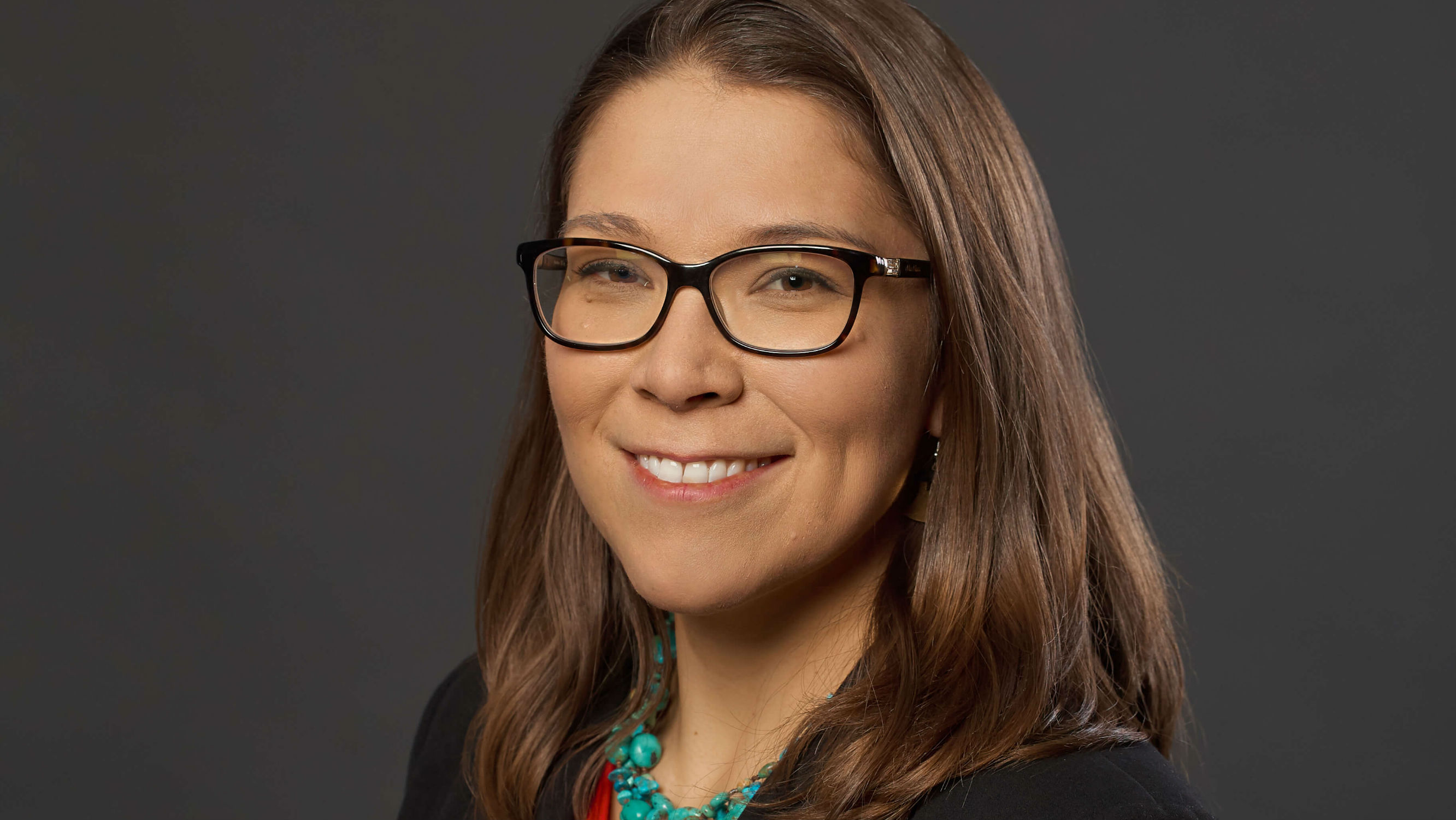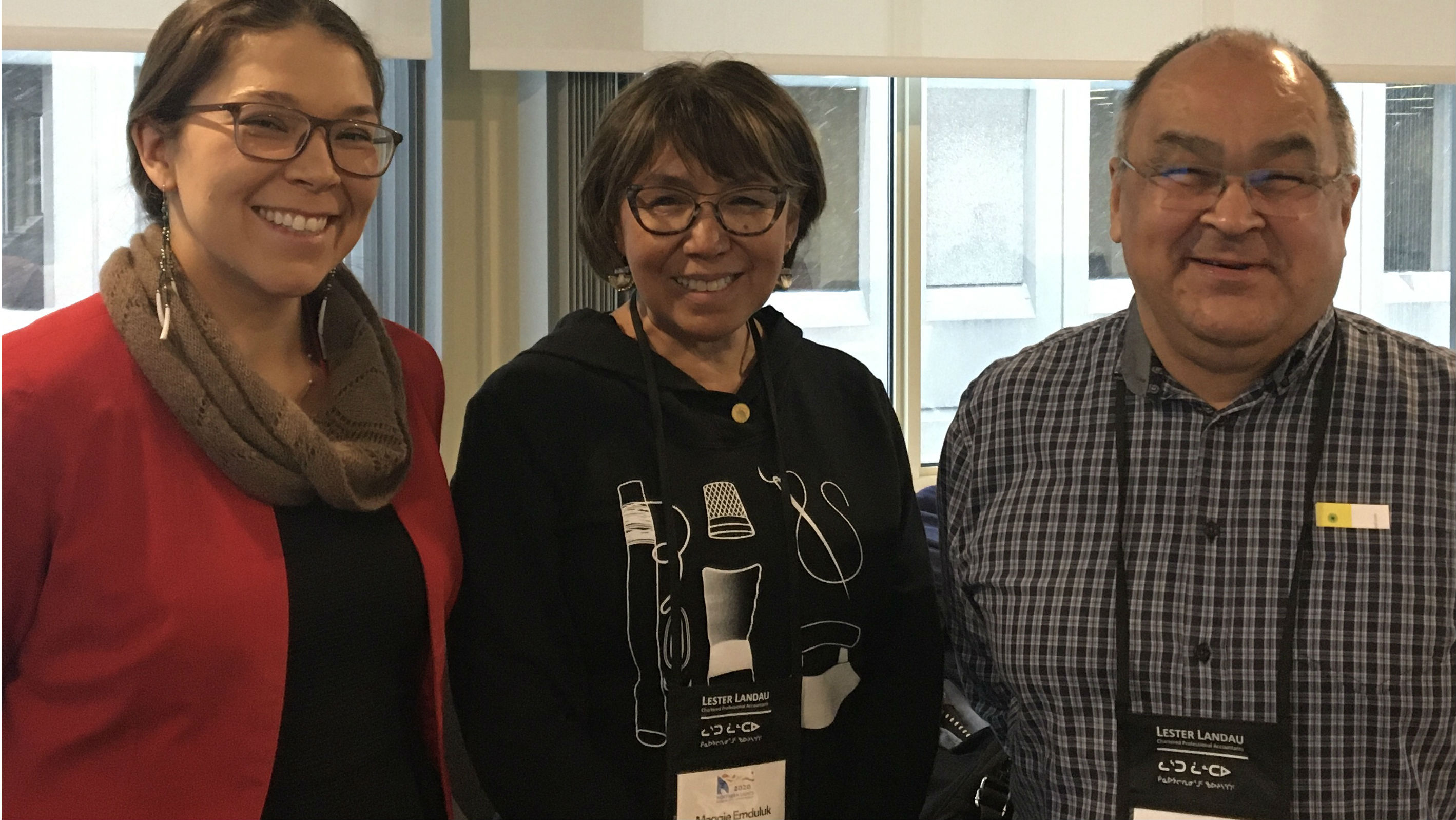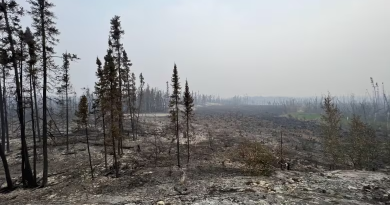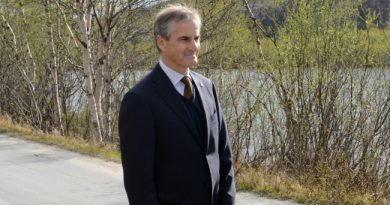Q&A: How the International Inuit Business Association wants to transform commerce in the Arctic

As interest in the Arctic ramps up in the global community, Inuit business leaders from across the Arctic want to make sure northern communities have a seat at the table.
Earlier this month, Inuit business representatives from Canada, Alaska and Greenland joined forces to create the International Inuit Business Association (IIBA) and had their inaugeral meeting in Ottawa.
The idea for the IIBA came out of the 2017 Inuit Circumpolar Council Economic Summit in Anchorage, Alaska where discussions centred around fostering business collaboration between the world’s Inuit regions in addition to establishing an international business association.
The Inuit Circumpolar Council (ICC) is an organization that represents the approximately 180,000 Inuit in Alaska, Canada ,Greenland, and Chukotka, Russia.
In this Eye on the Arctic feature interview, we talk to Liz Qaulluq Cravalho, the IIBA’s provisional executive committee chair, about the association, its goals, and how she believes it can help transform business in the Arctic.
Eye on the Arctic: What are one or two business challenges in the Arctic that an association like IIBA could help solve, or facilitate, solutions for?
Liz Qaulluq Cravalho: One area of interest, of course, is about air links. We’ve seen some interest about better connecting the North to the North across the Arctic. It would be a real cross-border benefit to our different regions in terms of transporting our local workforces, as well as potentially providing services for responsible resource development in those different areas through transportation of logistics, equipment, materials, those kinds of things. So I think there’s some definite interest in developing that idea.
There’s also discussion looking at fisheries and maritime activity and how can we coordinate some of that that across the Arctic in terms of consistency in services.
So those are two areas where I think there’s a lot of interest by our members and where there’s more discussions going on.

We’re seeing more and more pan-Inuit cooperation announcements over the last couple of years, besides the IIBA, there’s the Inuit Development Corporation Association in Canada made up of Inuit development corporations in the different provinces and territories, among other examples. What’s driving this trend?
The Arctic is a changing and is a dynamic space so there’s growing interest in everything from maritime activity to fisheries. Northerners, whether they’re in Alaska or Canada or potentially in the European countries, all have a similar interest in ensuring that we’re responsibly developing the region.
We all have common interests in ensuring we keep the cash economy in the Arctic strong. It’s a challenge that all of our areas face and so naturally brings our organizations together to connect with each other and talk about these opportunities that arise both in meeting the challenges of the changing Arctic, but also capitalizing on those opportunities to benefit communities and make sure that we’re having a conversation about what solutions businesses can bring to the table in the Arctic.
The IIBA had the inaugeral meeting in Ottawa earlier this February, what are the next steps now for the association?
We’re going to be fleshing out our criteria for membership, gauging interest from the community. We’re really interested in sustainable development of the Arctic that has positive impacts on local communities. Inuit organizations are already invested in that, and we really want to attract other organizations, whether they’re small entrepreneurs to larger businesses, who want to engage with us on opportunities as the Arctic changes, upholding similar values of responsible development in the Arctic, as well as how we have that benefit local communities.
One of the other pieces that we’ve identified out of the gate, is we want to look at the barriers to doing business across our national borders. So not just what the challenges are that stop Inuit business, but how can we address those challenges and really build good, strong business relationships that can have a positive impact on the Arctic economy.
A website and social media will be coming. In the meantime, folks can use LinkedIn to reach out to me as we work through our platform for IIBA.
And if you and I talk again in five years, what would you hope to have seen the IIBA accomplish?
I hope the accomplishment will be that it’s a positive space for new businesses and their potential partners to build some good North to North relationships, as well as potentially some South-North relationships. To me, if we have some good examples coming out of that in the next five years, that will be success for IIBA and success for its members.
The above Q&A has been edited and abridged.
Write to Eilís Quinn at eilis.quinn(at)cbc.ca
Canada: Air links between Canada, Alaska, Greenland & Siberia could be building blocks for economic development says Quebec Inuit leader, Eye on the Arctic
Greenland: Inuit in Canada, Alaska and Greenland found international business association, Eye on the Arctic
Finland: The Arctic Railway – Building a future or destroying a culture? Eye on the Arctic
Norway: Novatek touts Arctic LNG projects at Norwegian conference, declines media questions, The Independent Barents Observer
Russia: Inuit from Alaska, Canada, Greenland & Russia condemn U.S. torpedoing of Arctic Council declaration, Eye on the Arctic
Sweden: Indigenous reindeer herders request emergency aid after drought, wildfires ravage Sweden, Eye on the Arctic
United States: Bill to protect ANWR passes early hurdle in Washington, CBC News
.



